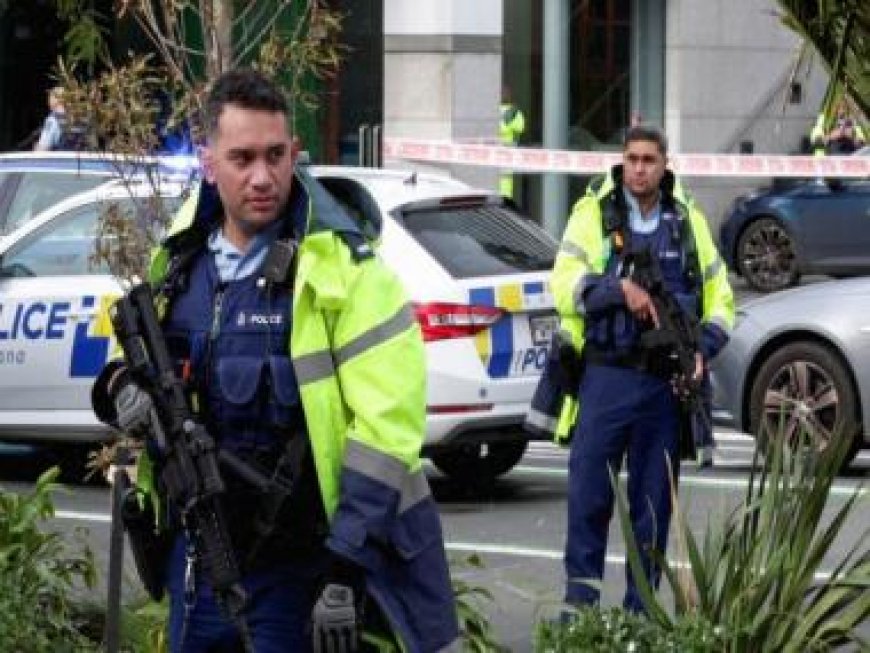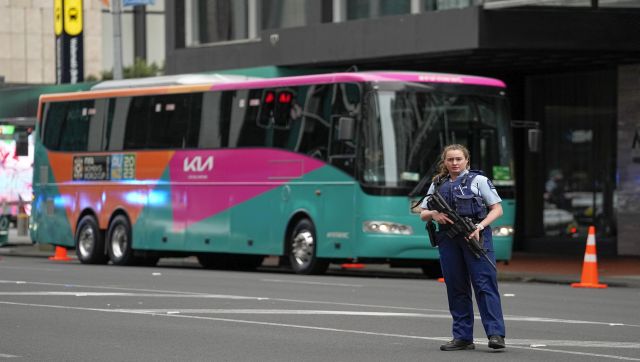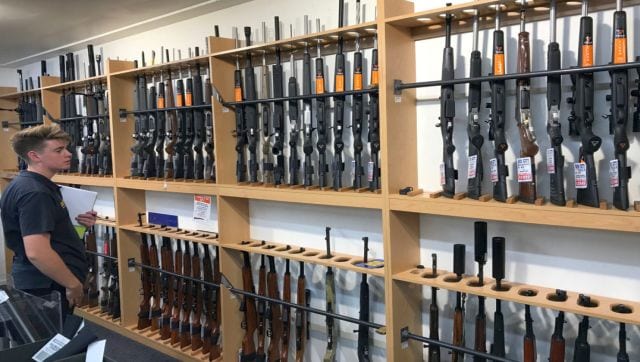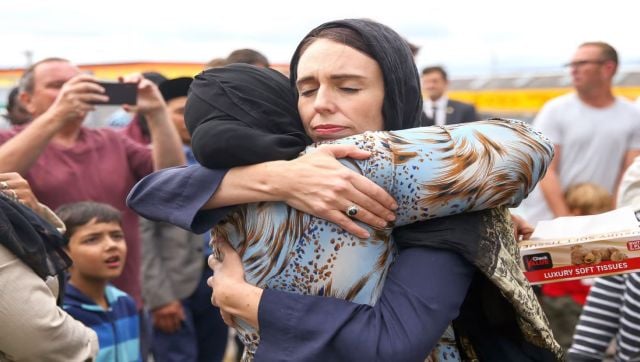3 dead in Auckland shooting: How stringent are New Zealand’s gun laws?
3 dead in Auckland shooting: How stringent are New Zealand’s gun laws?

Excitement was in the air in New Zealand. Auckland was ready to host FIFA Women’s World Cup opening game. However, on Thursday morning, the city woke up to the sounds of gunshots, blaring police sirens, and dozens or armed police officers storming Queen Street in response to a shooting.
Two people were killed and six others were injured when a gunman, who was later declared dead, opened fire in the city centre, just a stone’s throw from the team hotels of Norway, who play later on Thursday.
Prime Minister Chris Hipkins, later in a press conference, said that the attack was not being seen as an act of terrorism and there was no national security risk or rise in the national threat level. He confirmed that that the World Cup would proceed as planned.
As the city tries to resume normalcy, here’s a clearer look at what happened and the existing gun laws in the country.
Terrible Thursday
On Thursday morning, a shooter armed with a pump-action shotgun, whose name has been revealed yet, arrived in the city centre of Auckland and opened fire on a construction site.
The emergency services rushed to the spot almost immediately, pushing the shooter up the building. The New Zealand prime minister later told the public that upon reaching the upper levels of the building the man contained himself in an elevator and police engaged with him, shots were fired and he was located a short time later.
New Zealand Police Commissioner Andrew Coster said one officer was shot as he attempted to engage the gunman, and four civilians had “moderate to critical injuries.” He added that the suspect had been under home detention orders but had an exemption to work at the construction site where the shooting took place, and the incident was believed to be related to his work there.

The man had a “family violence history” but there was “nothing to suggest that he has presented a high level risk,” Coster said. He did not have a firearms licence, Coster added.
Prime Minster Chris Hipkins confirmed the football tournament would go ahead as planned. “Clearly with the FIFA World Cup kicking off this evening, there are a lot of eyes on Auckland,” Hipkins said. “The government has spoken to FIFA organisers this morning and the tournament will proceed as planned.”
In a statement, FIFA said it extended “its deepest condolences to the families and friends of the victims”. “FIFA has been informed that this was an isolated incident that was not related to football operations and the opening match tonight at Eden Park will proceed as planned,” the statement added.
However plans to show the match on a big screen at a fanzone in downtown Auckland have been scrapped “out of deep respect to those who lost their lives,” the mayor’s office and Auckland Council said in a statement.
Gun laws in New Zealand
Shootings such as the one on Thursday are rare in New Zealand on account of the strict gun laws in the country. In fact, the strict gun laws were tightened even further in 2019 after the massacre in Christchurch when a gunman killed 51 Muslim worshippers.
New Zealand, despite being a small nation, has a long history of gun ownership. It dates back to when European explorers first sought to conquer the territory as well as to its thriving hunting, farming and sports shooting culture. In 2019, it was reported that the country had an estimated 1.5 million firearms – roughly one for every three citizens.

In the country, the minimum legal age to own a gun is 16, or 18 for military-style semi-automatic weapons. Anyone over those ages who is considered by police to be “fit and proper’ can possess a firearm.
All gun-owners must have a licence, but most individual weapons don’t have to be registered. New Zealand is one of the few countries where this is the case. In order to own a gun legally, applicants for a firearm licence must pass a background check of criminal and medical records. Factors like mental health, addiction and domestic violence should be considered.
However, following the 2019 Christchurch massacre, gun laws in the country were modified. Then Prime Minister Jacinda Ardern announced a temporary ban on most semi-automatic weapons.
She also announced a registry in which licence holders would be required to update as they buy or sell guns. Furthermore, a prohibition was introduced on high-risk firearms like short semi-automatic rifles, and the length of firearms licence for first-time holders was reduced from 10 years to five.
Ardern also introduced a gun buyback programme, to reduce gun ownership. Essentially, it was selling your firearms to the government, provided they are licensed. There was also an amnesty scheme, which guaranteed that the owner of an already prohibited firearm would not be prosecuted if he handed it in. As a result, over 60,000 firearms and more than triple the number of components, including high-capacity magazines, were taken out of circulation.
In 2022, New Zealand judges were empowered by law to ban certain people from accessing or using guns for up to 10 years after they were convicted of a violent crime.
Then the Police Minister, Chris Hipkins had said that the new laws would target any violent offenders, including gang members. They were meant to balance public safety with the right to use and own a firearm by focusing on those with a history of offending, he said.

Gun violence in New Zealand
Thursday’s shooting in Auckland joins a rather short list of such tragedies in the country. Before this incident was the Christchurch tragedy of 2019. At least 49 people were killed and 20 injured in an attack on two mosques by a White supremacist. The incident is considered the deadliest shooting in the modern history of New Zealand and Brenton Harrison Tarrant, the shooter, pleaded guilty to murder and engaging in a terrorist act, and was sentenced to life imprisonment without parole
The 2019 shooting was preceded by the 1997 incident. Six people were murdered and four wounded in the North Island town of Raurimu. The tragedy took place when a 24-year-old Stephen Anderson attacked people with a shotgun at a ski lodge.
In February 1997, he was charged with six counts of murder and attempted murder of eight people. In December 1997, he was tried in the High Court at Hamilton where the jury found him “not guilty by reason of insanity” on all charges and he was detained indefinitely at a forensic mental health unit at Porirua Hospital.
Perhaps the deadliest shooting in New Zealand before Christchurch was in 1990. A gunman in the small seaside township of Aramoana killed 13 people and injured three others before he was shot dead by police. The shootings led to a 1992 amendment to the regulations on military-style semi-automatic weapons.
With inputs from agencies
What's Your Reaction?



























































